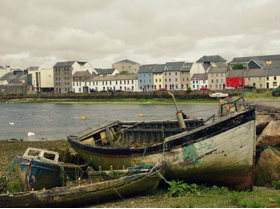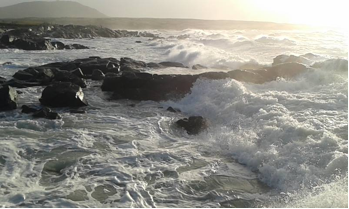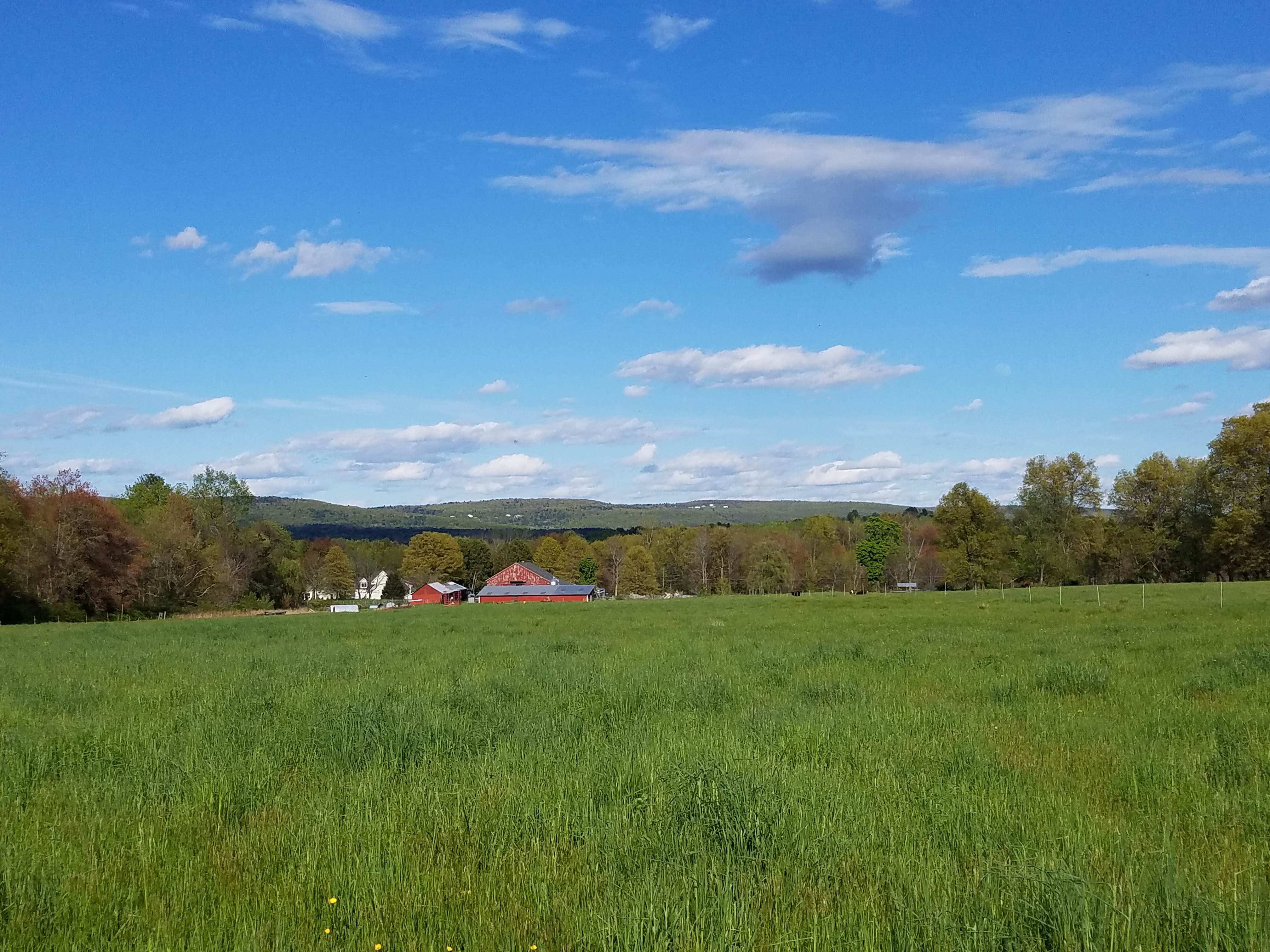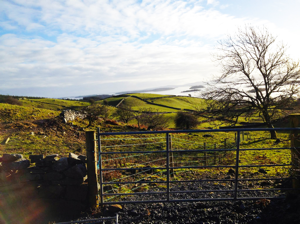Spaces are still available for Mark Feinstein’s incredible interdisciplinary course in West Ireland this summer! Learn about the intersections of agriculture, culture, and ecology in one of the most beautiful places in the world:
THE WEST OF IRELAND: agriculture, culture and ecology
CS-242S
Instructor: Mark Feinstein
Course dates: May 28 – June 11, 2015.
Fee: $2100 plus airfare. There is still room available in this course. For more information please contact the Hampshire College Global Education Office (413.559.5542, geo@hampshire.edu) or the instructor (413.559.9093, mfeinstein@hampshire.edu).
For more than 6000 years people in the west of Ireland have struggled to support themselves through sustainable small-scale farming and fishing. Hilly, rocky, rainy and windy, with a rugged coastline, it’s a very beautiful if difficult place to make a living from the land. But it also provides a great natural laboratory in which to study how people use land and how humans have shaped their environment. Here, for example, vast early forests were cut down for grazing, cultivation and fuel, creating a striking vista of bare hills that are still used for sheep farming, and peat bogs where “turf” is still dug out and burned to provide a source of cheap local energy. But deforestation has contributed to erosion and soil-nutrient depletion, and peat extraction exacerbates global warming. In response, forests are being replanted, creating new economic opportunities – as well as ecological (and aesthetic) challenges.
 In this intensive field course, we travel for two weeks in the west of Ireland in a highly multidisciplinary exploration of these and many other issues about agriculture, environment, and ecology. We address a wide range of complex questions: Should the bare landscape be restored by re-forestation? Is it possible (or desirable) to sustain traditional agricultural practices such as turf-cutting and free-range sheep farming on the hills? How have changes in land use affected the ecology of native plants and animals? Can the rural beauty of the place–both for its intrinsic aesthetic value and for the increasingly-important tourist industry–be maintained alongside modernization and economic development? What is the future of Irish farming and rural life in the face of changes in global climate, food production and distribution? What are the consequences of Ireland’s membership in the EU, whose regulations have impacted on many aspects of rural life?
In this intensive field course, we travel for two weeks in the west of Ireland in a highly multidisciplinary exploration of these and many other issues about agriculture, environment, and ecology. We address a wide range of complex questions: Should the bare landscape be restored by re-forestation? Is it possible (or desirable) to sustain traditional agricultural practices such as turf-cutting and free-range sheep farming on the hills? How have changes in land use affected the ecology of native plants and animals? Can the rural beauty of the place–both for its intrinsic aesthetic value and for the increasingly-important tourist industry–be maintained alongside modernization and economic development? What is the future of Irish farming and rural life in the face of changes in global climate, food production and distribution? What are the consequences of Ireland’s membership in the EU, whose regulations have impacted on many aspects of rural life?
The course also addresses inter-relationships between the physical landscape, farming, and culture at large. The “spirit” of Ireland has always been deeply rooted in the land. And, especially in the rural west, forms of traditional Irish culture remain vibrant. Farming techniques that have been handed down for countless generations are still in use. The Irish language, which has all but disappeared in much of Ireland, is still spoken daily by many in the rural west. Traditional styles of music and dance long associated with rural life abound. But how will these unique cultural forms fare as fewer and fewer people make their living directly from the land?
We look as well at historical and political dimensions of farming life and rural land use. For centuries, small tenant farmers struggled with absentee landlords who extracted exorbitant rents, often leading to bloody conflict. Indeed, the nature of land ownership under English rule was a major factor in the growth of Irish nationalism. And just a century and a half ago, the practice of potato monoculture contributed to the death by starvation and disease of more than a million Irish people during the Great Famine, many of them small farmers in the west. Many more were forced to emigrate, mostly to North America, where they and their descendants have had a profound influence on our own social life.
Our home base will be in Galway city, an old, small, but lively and cosmopolitan center of traditional Irish culture in the west. We’ll spend most of our time however in surrounding rural areas: the mountains, bogs and shores of Connemara; the great peat-bogs and rich farmlands of the Midlands; the rocky Burren in nearby County Clare, a rare and remarkable limestone karst environment with a unique eco-system; and Inishmaan, one of the Aran Islands set off the coast in the ‘wild Atlantic,’ to get a sense of a place whose culture and traditional farming practices have been relatively little-affected by modernization (but which does now get most of its electric power from wind turbines). We’ll also visit the Ceide fields in County Mayo, a prehistoric farming site undergoing extensive archaeological study; spend a day in Dublin city (where a quarter of the Irish population lives) to have a look at a highly urbanized contrast to the rural west; and visit remote, mountainous and ocean-bound Donegal in the northwest.
 Students will be expected to read a substantial (and multidisciplinary) set of articles, monographs and other material before the trip, and to submit a written journal relating the readings to their experiences during the course.
Students will be expected to read a substantial (and multidisciplinary) set of articles, monographs and other material before the trip, and to submit a written journal relating the readings to their experiences during the course.



Congrats! My personal opinion is that agriculture is very important part of the economy and people and governments should pay more attention on it. Great course topics! There’s definitely need for such studies.